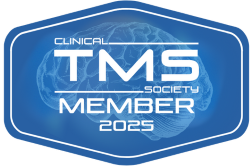
In the 21st century, we know far more about mental health and the origins of mental health diagnoses than in any other time in our history. For instance, we know that in most cases, the causes of mental health diagnoses include:
- Genetics, i.e. family mental health history
- Environment, i.e. the conditions in which we grow up
- Experiences, i.e. the things that happen to us, particularly when we’re young
Basically, we understand that mental health diagnoses are medical conditions that develop because of a combination of nature and nurture. Genetics is the nature part, and our environment and our experiences are the nurture part. Pharmaceuticals are utilized to treat mood disorders and target symptoms that are caused by imbalances of neurotransmitters such as serotonin, norepinephrine, and dopamine. Often, a co-occurring issue is inflammation triggered by overgrowth of pathogenic bacteria and yeast that are growing in the gut and need to be treated with antibiotics or antifungals.
The traditional way to treat mental health disorders is a combination of psychotherapy, medication (if needed), lifestyle changes, and community support. While this standard approach to mental health treatment is robust and effective for a majority of people who develop mental health diagnoses, around 30 to 40 percent of people with a clinical mental health disorder don’t respond well to this standard approach.
That’s why we use innovative approaches to treatment at Relief Mental Health, which include transcranial magnetic stimulation (TMS), SPRAVATO®, and IV ketamine.
However, recent research shows that an entirely new approach to mental health treatment may be effective, and that treatment focuses on something almost no one thinks about when they think about mental health: the gut microbiome.
The Gut Microbiome: What is it?
Our gut refers to our digestive system, and microbiome refers to the totality of microorganisms – including their combined genetic material – in a particular environment or part of the body.
Therefore, the gut microbiome refers to the organisms that live in our digestive system that most of us know of as bacteria. There’s a lot of bacteria in our gut. Researchers estimate there are more than one hundred billion bacterial cells present in just one gram of contents from our bowels.
That’s gross, but it’s true: our digestive system is filled with bacteria – and they perform critical functions. The bacteria present in our gut helps process our food for energy and prepare it for elimination through the digestive system. In addition, our gut microbiome promotes homeostasis (balance) by processing and eliminating unhelpful bacteria from our bodies. But when our gut microbiome goes out of balance, we experience something called dysbiosis, or imbalance.
The research mentioned briefly above is about the relationship between the gut microbiome and mental health. Specifically, researchers wanted to know if gut dysbiosis contributes to depression or depressive symptoms. To find answers, they conducted a study on 49 adults with major depressive disorder (MDD). They divided the adults into two groups, and over a period of eight weeks, one group received probiotics – i.e. substances that promote the growth of beneficial microorganisms – and one received a placebo.
The study, called “Acceptability, Tolerability, and Estimates of Putative Treatment Effects of Probiotics as Adjunctive Treatment in Patients With Depression: A Randomized Clinical Trial” showed the following results:
“Daily probiotic intake for eight weeks resulted in greater improvements in depressive and anxiety symptoms compared with placebo.”
For patients with anxiety or depression that doesn’t respond well to standard treatments, this data may signal a new direction in the treatment of mental health diagnoses such as depression and anxiety, with a focus on an area of the body largely ignored in mental health treatment: the gut microbiome.
The Gut Microbiome and Mental Health
That study prompted me to explore the topic further, especially for those with treatment-resistant mental health diagnoses seeking new and effective ways to manage their symptoms. Following are three salient features of the gut microbiome that can have a significant impact on mental health:
- Ninety percent of the body’s serotonin is manufactured in the gut. Serotonin is a neurotransmitter that has several functions, one of which relates to mood and feelings of happiness and satisfaction. Therefore, if there are gut disturbances, there is often a mood disorder, and vice versa. The gut microbiome should have a balance of healthy bacteria and yeast but often there is an imbalance that leads to issues with both physical and mental health.
- Overgrowth of pathological bacteria and/or yeast often leads to an increase in intestinal permeability where microorganisms are able to exit the gut and enter the body, triggering an immune response. This leads not only to immune disorders but also to psychiatric diagnoses such as anxiety, depression, and autism spectrum disorders.
- Overgrowth of bacteria such as proteobacteria and lactobacillus have been found in patients with psychotic disorders such as schizophrenia. In patients with major depression, overgrowth of bacteriocides such as oscillibacter, alistipes, prevotella, and klebsiella have been found.
- Candida overgrowth (yeast) in the gut leads to depression and the symptoms of fatigue, bloating and brain fog.
- In one study, female patients with bipolar disorder who had an overgrowth of akkermansia and/or sutterella had a decrease, not resolution, in symptoms once treated. (Flowers et al., 2017)
- Probiotics modulate and achieve balance in the gut microbiome by repopulating the gut with healthy bacteria. If there is an overgrowth of pathological bacteria, it should be treated with antibiotics or, if appropriate, effective nutraceuticals. The addition of probiotics will restore the healthy balance within the gut. Studies that date back to the 1950s show the positive role probiotics play in gut health.
Probiotics restore gut health, decrease permeability, decrease system-wide inflammation, and can be a significant tool in treating mental health diagnoses. However, if there is an overgrowth of a pathologic bacteria or yeast, that needs to be dealt with, also.
Where to Obtain Stool Testing
Unfortunately, stool tests ordered in most primary care offices do not do extensive testing to find these types of bacteria. There are several companies that provide a kit for stool collection that is done at home and then sent off by the patient. Genova Laboratories offers a comprehensive stool test that examines the DNA of bacteria in the stool with the ability to assess for 28,000 different types of bacteria. Typically, most humans have up to 200 in the stool.
Where to Find Probiotics and Prebiotics
While pathogenic bacteria are being eliminated, it is important to repopulate the gut with healthy bacteria. Probiotics contain live microorganisms and are found in food and supplements, and prebiotics are foods that feed the bacteria in the microbiome. Both are essential components of gut health, and therefore, both promote positive mental health.
Appropriate, healthy food sources for probiotics include:
- Yogurt
- Sauerkraut
- Kefir
- Buttermilk
- Cottage cheese
- Kombucha
Appropriate, healthy food sources for prebiotics include:
- Soybeans
- Artichokes
- Asparagus
- Berries
- Tomatoes
- Bananas
- Onions
- Garlic
- Whole grains
It’s essential for patients with a clinical mental health diagnosis to seek professional support and treatment: neither probiotics or prebiotics can replace evidence-based treatment delivered by a licensed provider. What probiotics and prebiotics can do is support and enhance professional treatment by ensuring patients have a healthy gut microbiome, free of dysbiosis, or imbalance, that can contribute to anxiety, depression and more.

